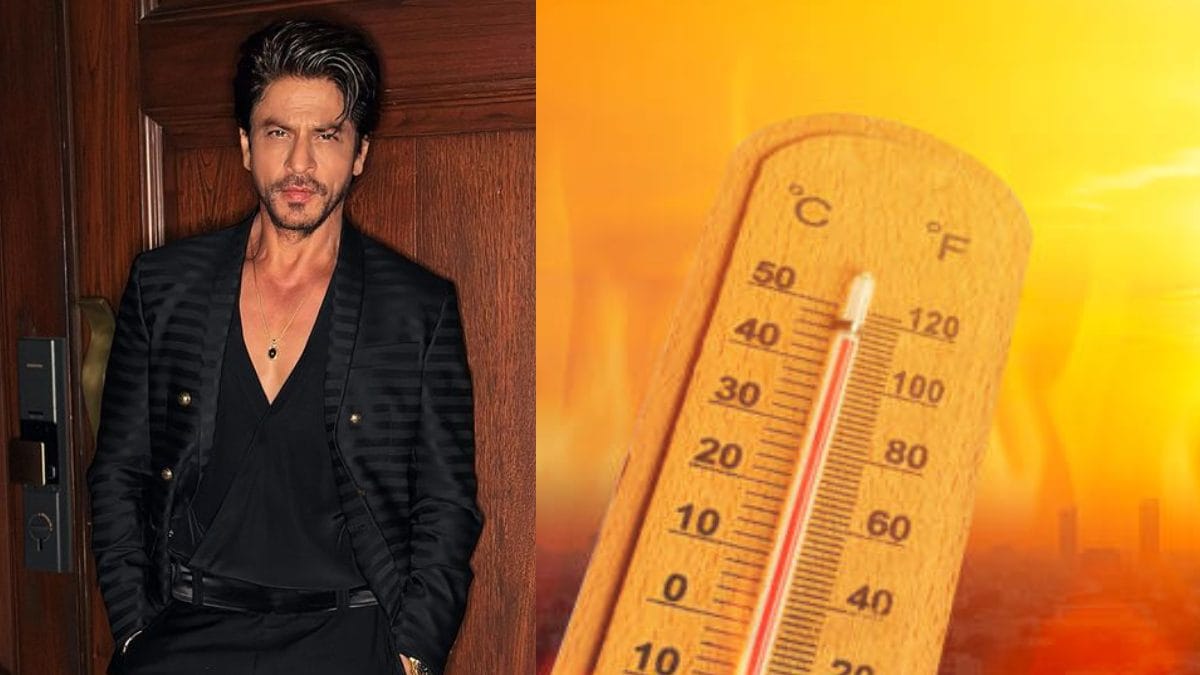Shah Rukh Khan Dehydrated, Suffers Heat Stroke: Tips To Prevent It During Summer

Shah Rukh Khan has been admitted to a hospital due to heat stroke at IPL match.
Bollywood superstar Shah Rukh Khan was admitted to a hospital in Ahmedabad after suffering a heat stroke. These are ten key tips to help you remain hydrated and safe during this summer’s heat wave.
Bollywood superstar Shah Rukh Khan has been admitted to a hospital following a heat stroke on Wednesday. The actor was admitted to Ahmedabad’s KD Hospital, according to authorities. SRK is doing well right now and there’s no need to panic, a source close to the actor told News18 Showsha. The actor was in Ahmedabad for his IPL team Kolkata Knight Riders’ (KKR) Qualifier 1 versus Sunrisers Hyderabad (SRH).
Gauri Khan, the interior designer and wife of actor Shah Rukh Khan, was photographed entering KD hospital not long after the actor’s admission was made public. The co-owner of KKR and close friend of Shah Rukh Khan, actress Juhi Chawla, visited the actor with her husband Jay Mehta.
Here’s a closer look at some steps we may take to avoid dehydration and heat stroke during this severe heatwave, as it goes without saying that the news of SRK’s hospitalisation has alarmed his fans.
- Stay Hydrated:Even if you don’t feel thirsty, make sure to drink a lot of water throughout the day. Try to drink 8 to 10 glasses a day or more to stay hydrated.
- Avoid direct sunlight.Try to avoid being in the sun as much as possible, especially between 10 AM and 4 p.m. When you can, find shade.
- Wear lightweight clothes.To keep your body cool, choose airy, loose-fitting, and colourful textiles like cotton.
- Use Sunscreen:To shield your skin from damaging UV rays and avoid overheating, slather on a broad-spectrum sunscreen with at least SPF 30.
- Take frequent rests.To avoid overexerting yourself when working or exercising outside, take regular rests in a cool, shaded environment.
- Take Electrolytes:Sports drinks or coconut water might help you replenish lost salts and minerals, especially if you’ve been perspiring a lot.
- Consume light foods.Choose easier-to-digest, smaller, lighter meals wherever possible. Cucumber and watermelon are two great examples of fresh produce with a high water content.
- Cool showers:Cool baths or showers will help you bring down your body temperature. As an alternative, apply cold packs or moist towels to your forehead, wrists, and neck.
- Keep an eye on your medication.Certain drugs may make heat-related illnesses more likely. Discuss any possible adverse effects with your doctor, and if required, take further safety measures.
- Remain Up-to-Date:Pay attention to heat advisories and weather forecasts. Make appropriate plans for your activities to avoid the warmest times of the day.
Impacts of Extreme Heatstroke on Body:
- Heart Distress:Heat dissipation is aided by high temperatures, which make the heart work harder to sustain blood flow to the skin.
- Dehydration:Sweating excessively causes electrolyte imbalances, acute dehydration, and even renal strain.
- Cognitive Ability:Heat can influence memory and judgement, among other cognitive functions. Severe cases may result in severe inflammation of the brain.
- Mental Health:Depression, anxiety, and even suicide rates have been related to higher temperatures.
- Enhanced Circulation:The more blood that reaches the skin, the harder the heart works. A person’s heart rate increases by 10 beats per minute for every 0.5°C increase in core temperature, which can cause dizziness and a racing heartbeat.
- Fatigue:Fatigue results from the brain telling the muscles to slow down.
- Nerve Misfires:When nerve cells malfunction, symptoms such as headaches, nausea, or vomiting arise.
You can safeguard others and yourself during periods of excessive heat by following these precautions and remaining knowledgeable about the telltale signs and symptoms of heat-related ailments. During hot weather, it’s easy to stay safe and comfortable by drinking enough of water, finding shade, and dressing appropriately.

Atul Tiwari is a seasoned journalist at Mumbai Times, specializing in city news, culture, and human-interest stories. With a knack for uncovering compelling narratives, Atul brings Mumbai’s vibrant spirit to life through his writing.





